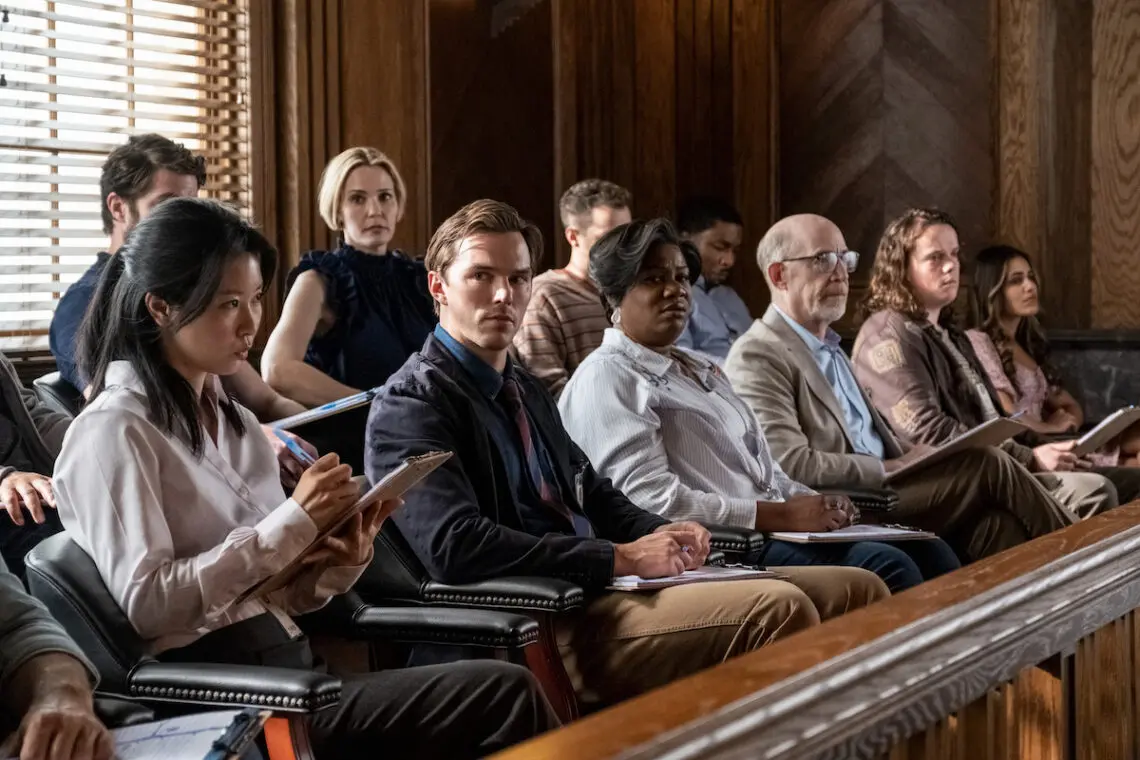Clint Eastwood’s “Juror No. 2” dives into guilt and justice
In Clint Eastwood’s new film, Juror No. 2, the courtroom becomes a stage for exploring complex themes of guilt and justice.
An unexpected twist at jury duty
Imagine being summoned for jury duty, only to realize on the first day of the trial that you are intrinsically connected to the case. Eastwood’s latest feature dives into this unsettling scenario, presenting a moral quagmire that keeps audiences on their toes.
The movie follows Justin Kemp (Nicholas Hoult), a seemingly upstanding citizen who, despite wanting to be with his pregnant wife (Zoey Deutch), finds himself selected for a jury on a murder trial. His involvement takes a dark turn as he realizes he may be responsible for the crime in question.
A courtroom drama with an edge
Juror No. 2 may appear to be a straightforward courtroom drama at first glance, but Eastwood’s deft direction ensures it is anything but. Instead, we’re treated to a psychological thriller that delves deep into the notions of guilt, justice, and the fallibility of the legal system. Hoult, portraying a recovering alcoholic, brings nuance to his role, exemplifying the torment of a man caught between his conscience and the law.
Prosecuting attorney Faith Killebrew (Toni Collette) serves as the catalyst for Justin’s moral dilemma. Her depiction of a domestic violence case throws him into an ethical abyss, as he remembers being present at the crime scene. Eastwood deftly conveys this inner conflict, with close-ups and subtle body language revealing Justin’s turmoil.
The Southern setting and its implications
Set in Georgia, the film takes advantage of its location to add layers to the narrative. Faith Killebrew’s Southern accent and political ambitions provide additional intrigue, as she campaigns for district attorney on a tough-on-domestic-abuse platform. This backdrop introduces political pressure and the ethical complexities of the justice system, creating a rich setting for the drama to unfold.
The jury as a microcosm of society
Once the trial concludes and deliberations begin, Juror No. 2 invites comparisons to classic courtroom dramas like 12 Angry Men. Justin, the lone dissenting voice among a prejudiced jury, faces the herculean task of swaying their opinions. J.K. Simmons, playing Harold, a former police detective, emerges as Justin’s sole ally, providing a sharp contrast to the jury’s hasty prejudices.
Rather than depicting the jury as a collection of noble peers, Eastwood’s portrayal reflects their susceptibility to bias and underscores the inherent flaws within the legal system. The film takes a critical stance, presenting a damning critique of how easily justice can be swayed by personal prejudices.
Technical mastery and narrative depth
Editors Joel Cox and his son David meticulously craft each scene, using tight close-ups of Justin’s face to communicate his internal struggle. Hoult’s performance shines through these moments, as every nervous glance and shifty look underscores his character’s crisis of conscience.
The score and cinematography support this emotional landscape, providing a somber tone that aligns with Eastwood’s restrained directorial style. The film eschews melodrama for a more earnest, grounded approach, heightening the impact of the moral dilemmas presented.
Faith and redemption
Toni Collette’s character, initially presented as a self-righteous obstacle to justice, undergoes significant development. As the trial progresses, Faith Killebrew begins to question her case, which not only jeopardizes her political career but also adds depth to her character. This transformation positions her as an unexpected champion of justice, paralleling Justin’s own journey.
The gripping finale
In a clever narrative twist, the script by Jonathan Abrams skips over the jury’s final vote. The audience learns the verdict alongside the characters, maintaining suspense and emphasizing the unpredictability of legal outcomes. This decision amplifies the emotional weight of Justin’s off-screen choice, forcing viewers to reflect on the implications themselves.
Juror No. 2 stands out as one of Eastwood’s quieter films, favoring introspection over spectacle. The ending leaves much open to interpretation, respecting the audience’s intelligence by trusting us to judge the events we’ve witnessed.
Clint Eastwood’s latest film is a thought-provoking exploration of the human conscience, showcasing his enduring ability to tackle profound themes with subtlety and grace. Engage with this gripping narrative and ponder the difficult questions it raises on your own terms.
Follow us for more insights into the world of film and keep the conversation going on social media!

 Italian
Italian







